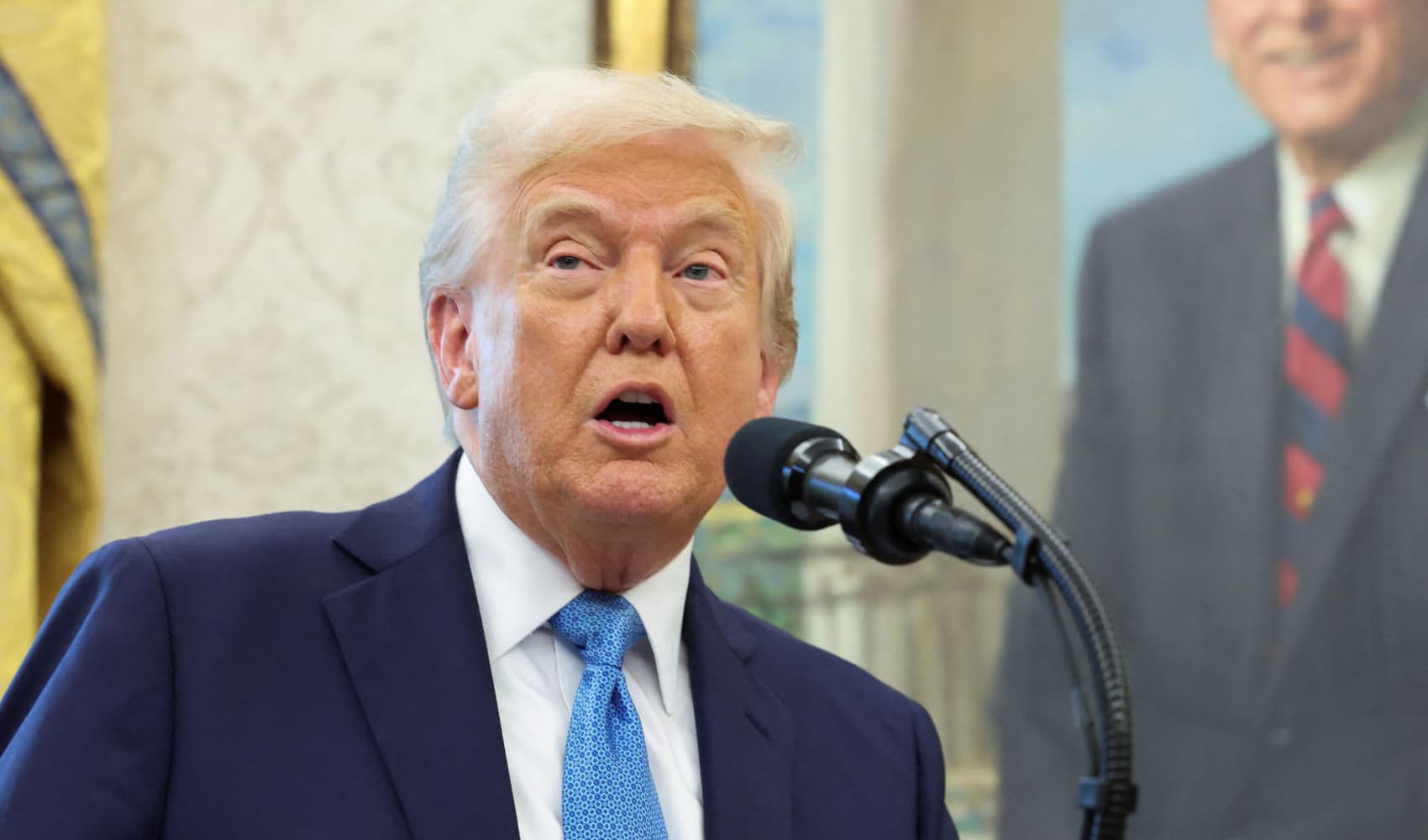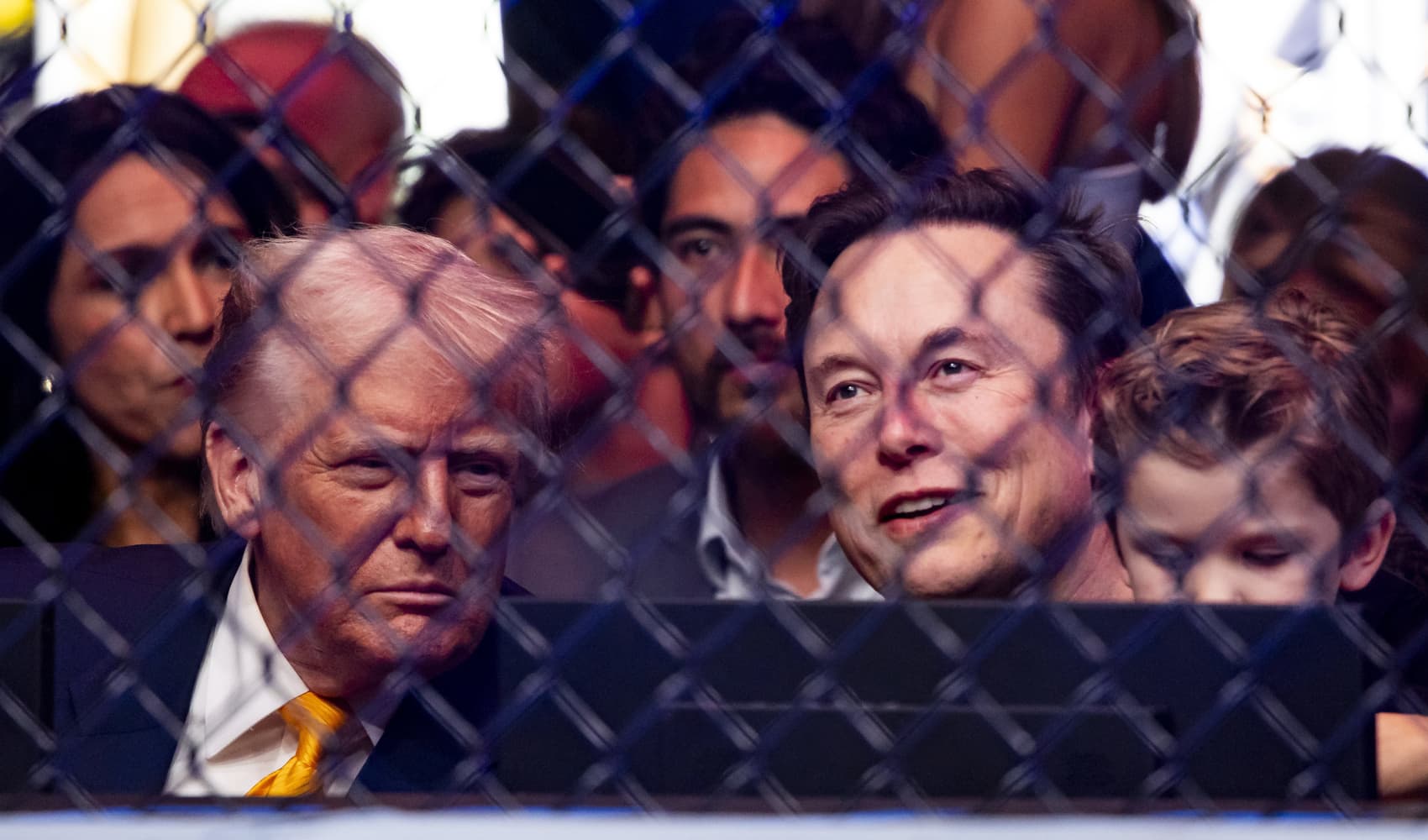Trump Backs Down? Powell's Fed Job Now Secure!
Trump's Surprising U-Turn: Powell's Job Safe?
The Rollercoaster Ride: Trump and the Fed Chair
Hold on to your hats, folks! The saga between President Trump and Federal Reserve Chair Jerome Powell has taken another twist. Remember all the rumblings, the potential firings, the general air of uncertainty surrounding Powell's position? Well, things just got a whole lot clearer – or did they? President Trump has stated he has "no intention" of firing Jerome Powell.
From Ire to "No Intention": A Dramatic Shift
Let's rewind for a moment. Just recently, Trump was openly critical of Powell and his monetary policy decisions. He even hinted at the possibility of removing him from his position, an unprecedented move that sent shivers down the spines of economists and market watchers alike. So, what sparked this sudden change of heart? Is it a genuine shift in perspective, a strategic maneuver, or something else entirely?
The Recent Rhetoric: A Primer on Trump's Criticism
Trump’s dissatisfaction with Powell stemmed primarily from the Fed’s interest rate hikes, which Trump believed hindered economic growth. He argued that these hikes were unnecessary and put the U.S. at a disadvantage compared to other countries with lower interest rates. He repeatedly voiced his opinions on Twitter and in public statements, creating a tense atmosphere between the White House and the Federal Reserve.
The Unprecedented Threat: Firing a Fed Chair
The idea of firing a sitting Fed Chair is a big deal. It’s never been done before, and for good reason. The Federal Reserve is designed to be independent from political pressure, allowing it to make decisions based on economic data rather than political whims. Firing Powell would have raised serious questions about the Fed's independence and potentially damaged the U.S. economy.
The Market Reacts: A Sigh of Relief?
The markets breathed a collective sigh of relief, or at least that's what the initial surge in stock futures suggests. When Trump’s “no intention” statement hit the news wires, U.S. stock futures jumped across major indexes. Why? Because the market craves stability, and the uncertainty surrounding Powell's future was a major source of anxiety.
The Immediate Market Response: Futures Jump
The knee-jerk reaction in the futures market highlights the significant influence the Fed Chair has on investor sentiment. The prospect of Powell staying put, at least for now, provided a sense of reassurance that the Fed’s monetary policy would remain relatively stable and predictable.
Long-Term Implications: Still Too Early to Tell
However, let's not get ahead of ourselves. One statement doesn't erase the history of tension between Trump and Powell. The long-term implications of this relationship (or lack thereof) are still uncertain. Will Trump continue to respect the Fed's independence, or will he revert to his critical stance? Only time will tell.
Why This Matters: The Fed's Role in the Economy
The Federal Reserve plays a crucial role in managing the U.S. economy. It sets interest rates, regulates banks, and generally tries to keep the economy humming along smoothly. Think of it as the economy's mechanic, constantly tweaking and adjusting things to keep the engine running optimally. Its independence is vital to ensure these decisions are made based on economic principles, not political pressure.
Monetary Policy: The Fed's Toolbox
The Fed uses various tools to influence the economy, primarily by adjusting interest rates. Lowering interest rates encourages borrowing and spending, which can stimulate economic growth. Raising interest rates, on the other hand, can help to curb inflation. Navigating these adjustments effectively requires a deep understanding of economic conditions and a steady hand.
Independence is Key: Protecting the Economy from Politics
The Fed's independence is a cornerstone of a healthy economy. Imagine if political considerations dictated monetary policy. We might see interest rates manipulated to boost short-term political gains, even if it meant long-term economic instability. That's why protecting the Fed's independence is so important.
Interpreting Trump's Words: What Does "No Intention" Really Mean?
"No intention" is a powerful statement, but let's be realistic. In the world of politics, words can be fluid. What does "no intention" truly mean? Is it a firm commitment, or is it simply a statement of current intent that could change at any moment? This is the million-dollar question on everyone's mind.
The Art of Political Language: Decoding the Message
Political language can often be ambiguous, leaving room for interpretation and maneuverability. Trump's statement could be interpreted as a sign of respect for the Fed's independence or as a temporary truce in a long-standing feud. The true meaning likely lies somewhere in between.
The Timeline: Powell's Term and the 2024 Election
Powell's term as Fed Chair expires next year. This timeline adds another layer of complexity to the situation. Does Trump's "no intention" statement apply only to the remainder of Powell's term, or does it signal a broader shift in his thinking? And how will this affect the 2024 election cycle?
The Road Ahead: What to Watch For
So, what should we be watching for in the coming months? Here are a few key indicators to keep an eye on:
- Trump's future statements on the Fed: Will he maintain a respectful tone, or will he revert to his previous criticism?
- The Fed's monetary policy decisions: Will the Fed continue on its current course, or will it make adjustments based on economic data?
- Market reactions: How will the markets respond to future developments in the relationship between Trump and the Fed?
Economic Indicators: Gauging the Health of the Economy
Keep an eye on key economic indicators such as inflation, unemployment, and GDP growth. These metrics will provide insights into the overall health of the economy and influence the Fed's monetary policy decisions.
The Political Landscape: Navigating Uncertainty
The political landscape is constantly shifting, and the relationship between the White House and the Fed is always subject to change. Stay informed about political developments and their potential impact on the economy.
Conclusion: A Tentative Truce or a Lasting Peace?
Trump's statement that he has "no intention" of firing Fed Chair Powell has injected a dose of stability into a previously uncertain situation. The markets have reacted positively, but the long-term implications remain to be seen. The key takeaway is that the relationship between the White House and the Federal Reserve remains a critical factor in shaping the U.S. economy. We must closely monitor future developments to understand whether this is a genuine shift in perspective or simply a temporary truce in a long-running saga.
Frequently Asked Questions (FAQs)
- 1. What exactly does the Federal Reserve do?
- The Federal Reserve, often called "the Fed," is the central bank of the United States. It's responsible for setting monetary policy, regulating banks, and maintaining the stability of the financial system. Think of it as the conductor of the economic orchestra.
- 2. Why is the Fed's independence so important?
- The Fed's independence ensures that monetary policy decisions are based on economic data and analysis, rather than political pressure. This helps to maintain long-term economic stability and prevent short-sighted political maneuvers that could harm the economy.
- 3. Can the President actually fire the Fed Chair?
- While the President appoints the Fed Chair, it's generally understood that they should not be fired for disagreeing with the President's policies. Firing a Fed Chair would be an unprecedented move that could undermine the Fed's independence and damage the U.S. economy.
- 4. How does the Fed influence interest rates?
- The Fed primarily influences interest rates by setting the federal funds rate, which is the target rate that banks charge each other for overnight lending. This rate, in turn, affects other interest rates throughout the economy, such as mortgage rates and credit card rates.
- 5. What are the potential consequences of firing a Fed Chair?
- Firing a Fed Chair could have several negative consequences, including: eroding confidence in the Fed's independence, causing market turmoil, potentially destabilizing the U.S. economy, and damaging the credibility of the United States on the global stage.

